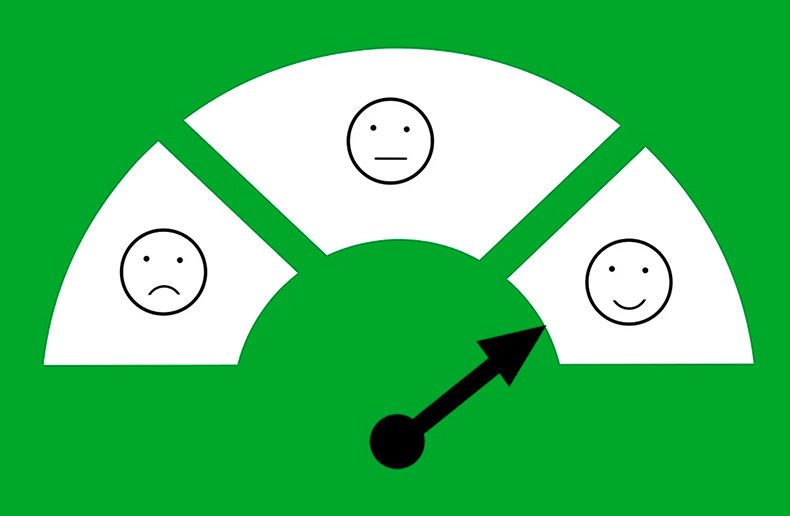The LifeWorks (formerly Morneau Shepell) Mental Health Index score was -10.7 in April 2021, up from -11.2 in March 2021. Negative scores mean that the level of mental health is below the pre-pandemic baseline score.
This is the 13th consecutive negative score for the Mental Health Index. When the LifeWorks index debuted in April 2020, its score was -11.7. It bottomed out at -11.8 in December 2020.
Published monthly, the Mental Health Index is based on survey results. For the latest index, LifeWorks surveyed 3,000 Canadians from March 22 to April 2, 2021. All respondents were employed in the six months prior to the survey, the consulting firm says.
Optimism
Despite the series of negative scores stretching back more than a year, the index showed signs of optimism in April 2021. The score of 10.2 had not been this high since September 2020. It has improved for the last four months.
Respondents to the LifeWorks survey were also asked which event would most improve their outlook for the future. Nearly one-third of the Canadians surveyed mentioned the hope of getting vaccinated against COVID-19.
Mixed signals
In contrast, the sub-scores of the index are sending mixed signals. The good news: Most of the sub-scores improved in April compared with March.
The anxiety sub-score showed the greatest improvement between March and April. The psychological health sub-score also improved. It thus reversed the trend of a steady decline since the index emerged.
In contrast, most of the secondary scores on the Mental Health Index are a far cry from positive territory. Apart from the Financial risk score, LifeWorks reports that all sub-scores remain well below pre-pandemic baseline scores.
The index also shows a clear increase in mental stress among Canadians, with a mental stress change score of 57.1 (50 is the neutral point, meaning no change from the previous month). The report adds that 21 per cent of the population is feeling more mental stress than a month earlier. “The greatest increase in month-over-month stress is for respondents living in Alberta (60.1), followed by Ontario (58.0).”
The consulting firm thus concludes that Canadians’ mental health remains at significant risk. “Canada has experienced an uneven recovery in the past month, with more restrictive lockdowns and uncertainty about vaccine availability causing continued feelings of isolation and uneasiness. This appears to have taken a positive turn in recent weeks, with lowering case counts contributing to a positive shift in optimism. The mental health of working Canadians, however, is still well below the level it was prior to the pandemic,” says Stephen Liptrap, President and CEO of LifeWorks Wellness Solutions.
Almost half of Canadians need support
The key finding of the LifeWorks Mental Health Index is that Canadians have a significant need for psychological support, despite an upsurge in optimism. The report states that 45 per cent of working Canadians want mental health support.
These conclusions mirror Jacques Goulet’s comments made to the Canadian Club of Montreal. The President of Sun Life Canada said that his group insurance customer service centres were receiving more and more distress calls.
In the Mental Health Index report, LifeWorks writes that “More than one year into the COVID-19 pandemic, the fatigue of ongoing restrictions as well as delays in vaccine shipments continue to strain the mental health of Canadians.”
Making care more affordable
The April 2021 Index report also mentions the barriers that prevent Canadians from seeking mental health support. The high cost of care is the foremost obstacle. “Of those who have not taken action on mental health in spite of the need, 30 per cent believe that affordable care is not available,” the report reads. What’s more 29 per cent report that they do not have energy to seek care, and 27 per cent do not know which type of care is best for them.
With mental health scores trending below their pre-pandemic levels, Stephen Liptrap called on employers to recognize the long-term consequences of this situation and take steps to provide accessible mental support.
The LifeWorks CEO praised some provinces for offering free services. “In instances where Canadians do not have access to these programs through their employer, it’s great to see Ontario, Manitoba and Saskatchewan as examples of provincial governments who have stepped in to provide free mental-health programs.”














